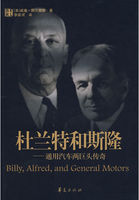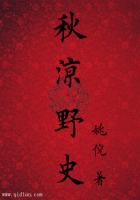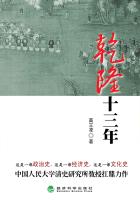We naturally retain, after we are old, those habits of respect and submission which we received in our youth; and we find it difficult to put ourselves upon a level with those persons whom we have long regarded as greatly our superiors.The slave, who has been bred up in a low situation, does not immediately, upon obtaining his freedom, lay aside those sentiments which he has been accustomed to feel.He retains for some time the idea of his former dependence, and notwithstanding the change of his circumstances, is disposed to continue that respect and reverence which he owed to his master.We find that the legislature, in some countries, has even regarded and enforced these natural sentiments.By the Roman law a freed man was, through the whole of his life, obliged to pay to his patron certain attendance on public occasions, and to show him particular marks of honour and distinction.If ever he failed in the observance of these duties, he was thought unworthy of his liberty, and was again reduced to be the slave of that person to whom he had behaved in so unbecoming a manner.
A son who, in a barbarous age, has been accustomed from his infancy to serve and to obey his father, is in the same manner disposed for the future to continue that service and obedience.
Even after he is grown up, and has arrived at his full strength of body, and maturity of judgment, he retains the early impressions of his youth, and remains in a great measure under the yoke of that authority to which he has hitherto submitted.He shrink at the angry countenance of his father, and trembles at the power of that arm whose severe discipline he has so often experienced, and of whose valour and dexterity he has so often been a witness.He thinks it the highest presumption to dispute the wisdom and propriety of those commands to which he has always listened, as to an oracle, and which he has been taught to regard as the infallible rule of his conduct.He is naturally led to acquiesce in that jurisdiction which he has seen exerted on so many different occasions, and which he finds to be uniformly acknowledged by all the members of the family.In proportion to the rigour with which he is treated, his temper will be more thoroughly subdued, and his habits of implicit submission and obedience will be the stronger.He look upon his father as invested by heaven with an unlimited power and authority over all his children, and imagines that, whatever hardships they may suffer, their rebelling against him, or resistance to his will, would be the same species of impiety, as to call in question the authority of the Deity, and arraign the severe dispensations with which, in the government of the world, he is sometimes pleased to visit his creatures.
From these dispositions, which commonly prevail among the members of his family, the father can have no difficulty to enforce his orders, wherever compulsion may be necessary.In order to correct the depravity, or to conquer the rebellious disposition of any single child, he can make use of that influence which he possesses over the rest, who will regard the disobedience of their brother with horror and detestation, and be ready to contribute their assistance in punishing his transgression.
In the history of early nations, we meet with a great variety of facts, to illustrate the nature and extent of that jurisdiction and authority which originally belonged to the father, as the head and governor of his family.
We are informed by Caesar, that among the Gauls the father had the power of life and death over his children; and there is reason to believe, that, in the ancient German nations, his jurisdiction was no less extensive.
By the early laws and customs of Arabia, every head of a family seems, in like manner, to have enjoyed an absolute power over his descendants.When the sons of Jacob proposed to carry their brother Benjamin along with them into Egypt, and their father discovered an unwillingness to part with him, 'Rueben spake unto his father, saying, Slay my two sons, if I bring him not to thee: deliver him into my hand, and I will bring him to thee again.'(8*) Moses appears to have intended that the father should not, in ordinary cases, be at liberty to take away the life of his children in private; as may be concluded from this particular institution, that a stubborn and rebellious son should be stoned to death before the elders of the city.(9*) It was further enacted by this legislator, that a man might sell his daughter for a slave or concubine to those of his own nation, though he was not permitted to dispose of her to a stranger.
If a man sell his daughter to be a maid-servant, she shall not go out as the men-servants do.
If she please not her master, who hath betrothed her to himself, then shall he let her be redeemed: to sell her to a strange nation he shall have no power, seeing he hath dealt deceitfully with her.(10*)In the empire of Russia, the paternal jurisdiction was formerly understood to be altogether supreme and unlimited.Peter the Great appear to have been so little aware that the customs of his own country might differ from those of other nations, that in his public declaration to his clergy, and to the states civil and military, relative to the trial of his son, he appeals to all the world, and affirms, that, according to all laws human and divine, and, above all, according to those of Russia, a father, even among private persons, has a full and absolute right to judge his children, without appeal, and without taking the advice of any person.















